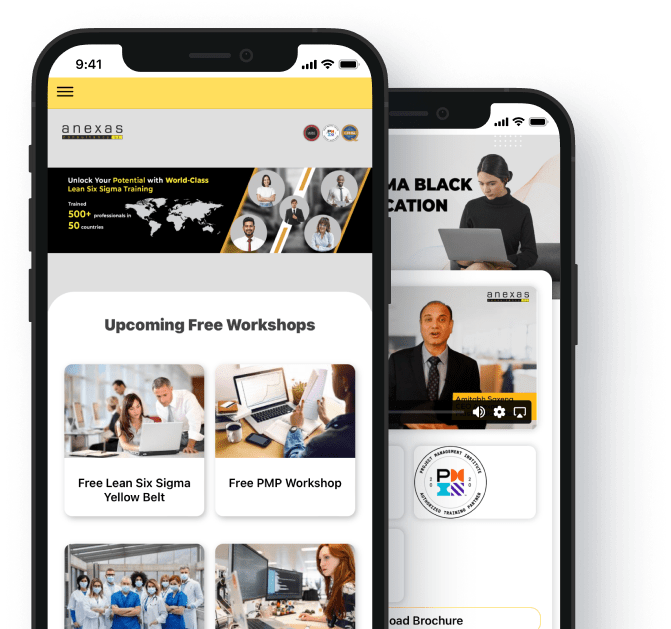Table of Contents
Share This Article
The Integral Role of CPHQ Professionals in Shaping Healthcare Quality Standards
- 29816 views
In the dynamic and complex realm of healthcare, the pursuit of quality is not just a goal but a fundamental commitment to ensuring the well-being of patients. Certified Professionals in Healthcare Quality (CPHQ) play a pivotal role in shaping and upholding the standards that define the quality of care in healthcare organizations.
(This article will delve into the multifaceted contributions of CPHQ professionals in defining, implementing, and maintaining high-quality standards that resonate throughout the healthcare industry.)
Defining Quality in Healthcare:
Before delving into the role of CPHQ professionals, it is essential to understand the concept of quality in healthcare. The training preaperes you for a global level exam and cphq exam fees various from regions. Quality in healthcare extends beyond the absence of errors; it encompasses safety, effectiveness, patient-centeredness, timeliness, efficiency, and equity.
CPHQ professionals are at the forefront of ensuring that these dimensions of quality are not just theoretical ideals but tangible aspects of patient care.
Crafting a Comprehensive Definition of Quality with CPHQ
CPHQ professionals contribute to the development of a comprehensive and nuanced definition of quality within healthcare organizations. This involves collaboration with healthcare stakeholders, including clinicians, administrators, and patients, to ensure that the definition aligns with the diverse needs and expectations of all involved parties.
To define quality in healthcare, CPHQ professionals must align their efforts with established regulatory and accreditation standards. This includes familiarizing themselves with guidelines from organizations leading in the healthcare hierarchy and other relevant bodies and incorporating these standards into the organization’s quality framework.
Establishing a Culture of Continuous Quality Improvement:
One of the primary responsibilities of CPHQ professionals is to cultivate a culture of continuous quality improvement within healthcare organizations. This goes beyond meeting minimum standards; it involves a commitment to consistently seeking ways to enhance the quality of care provided.
Implementing quality improvement methodologies
CPHQ professionals are well-versed in quality improvement methodologies such as Lean, Six Sigma, and the Plan-Do-Study-Act (PDSA) cycle. They apply these methodologies to identify areas for improvement, implement changes, and monitor outcomes, fostering a culture of continuous learning and refinement.
Successful quality improvement requires the collaboration of healthcare teams across various disciplines. CPHQ professionals act as catalysts for collaboration, facilitating communication and engagement among healthcare professionals to collectively drive improvements in patient care. Taking proper cphq certification classes, allows people to enable there potential.
Implementing Evidence-Based Practices:
In a field as dynamic as healthcare, evidence-based practices are essential for ensuring that interventions and treatments are rooted in the best available scientific evidence. CPHQ professionals contribute significantly to the adoption and integration of evidence-based practices within healthcare organizations.
Cphq certification trainings enables professionals engage in research and data analysis to identify evidence-based practices that can enhance patient outcomes. They assist healthcare organizations in implementing interventions that are well-supported by evidence by staying up-to-date on research findings.cphq certification training
To implement evidence-based practices
CPHQ professionals promote a data-driven culture within healthcare organizations. This involves the collection, analysis, and interpretation of data to inform decision-making, measure performance, and drive continuous improvement.
Ensuring Patient-Centered Care:
The patient is at the heart of quality healthcare, and CPHQ professionals advocate for and contribute to the delivery of patient-centered care. This approach emphasizes the importance of tailoring healthcare services to meet the individual needs, preferences, and values of each patient. This is a important factor making cphq jobs salary, a high demand in healthcare market.
Patient Feedback
CPHQ professionals actively seek and incorporate patient feedback into the development of quality metrics. By understanding the patient’s perspective, they ensure that quality standards are not only clinically sound but also aligned with what matters most to patients.
To enhance patient-centered care, CPHQ professionals facilitate initiatives that promote patient engagement. This may include patient education programs, shared decision-making practices, and efforts to enhance communication between healthcare providers and patients.
Addressing healthcare disparities:
Healthcare disparities, often rooted in social determinants of health, remain a significant challenge. CPHQ professionals contribute to the mitigation of these disparities by actively working to ensure that healthcare services are equitable and accessible to all.
Analyzing quality metrics
CPHQ professionals analyze quality metrics to identify disparities in healthcare outcomes among different demographic groups. This data-driven approach enables organizations to pinpoint areas where disparities exist and implement targeted interventions to address these inequities.
To address healthcare disparities, CPHQ professionals advocate for culturally competent care. This involves recognizing and respecting the diversity of patients’ backgrounds, beliefs, and values and tailoring healthcare services to be inclusive and culturally sensitive.
Navigating Regulatory and Accreditation Requirements:
CPHQ professionals are intimately familiar with the regulatory and accreditation landscape of healthcare. They navigate these complex requirements to ensure that healthcare organizations not only meet the minimum standards but exceed them in their quest for excellence.
Best standard protocols
CPHQ professionals take a proactive approach to regulatory compliance by continuously monitoring changes in regulations and standards. This involves regular audits, assessments, and the development of strategies to address potential compliance gaps before they escalate.
Accreditation from organizations such as the Joint Commission signifies a commitment to delivering high-quality care. CPHQ professionals strategically prepare healthcare organizations for accreditation by conducting mock surveys, facilitating compliance training, and ensuring that all aspects of quality are addressed.
Embracing Technology and Innovation:
The healthcare landscape is evolving, and technology plays a crucial role in shaping the future of patient care. CPHQ professionals leverage technology and innovation to enhance the efficiency, safety, and effectiveness of healthcare services.
CPHQ professionals advocate for the implementation of health information technologies, such as electronic health records (EHRs), to streamline processes and improve data accuracy. This technological integration enhances communication among healthcare teams and supports evidence-based decision-making.
Utilizing advanced analytics
Data analytics is a powerful tool in the hands of CPHQ professionals. They utilize advanced analytics to identify trends, predict potential issues, and guide quality improvement initiatives. This data-driven approach ensures that healthcare organizations can adapt and innovate based on real-time insights.
Advocating for Patient Safety:
Ensuring patient safety is a fundamental aspect of healthcare quality, and CPHQ professionals are staunch advocates for creating and maintaining a safe environment for patients and healthcare providers alike.
Fostering patient trust
CPHQ professionals actively contribute to the development and implementation of safety protocols within healthcare organizations. This includes protocols for medication safety, infection control, and the prevention of medical errors.
To enhance patient safety, CPHQ professionals foster a culture of open communication. They encourage healthcare teams to report adverse events, near misses, and other safety concerns without fear of retribution, creating an environment where lessons can be learned and improvements can be made.
Conclusion:
In conclusion, the role of Certified Professionals in Healthcare Quality (CPHQ) in shaping healthcare quality standards is multifaceted and integral to the success of healthcare organizations. Through a combination of defining qualities
Frequently asked questions :
Is the cphq certification worth it?
The CPHQ certification offers numerous benefits, including enhanced career opportunities, increased credibility in healthcare quality management, and the ability to contribute significantly to improving patient care and organizational standards.
Cphq certification benefits?
CPHQ certification is recognized globally and can open doors to leadership roles in healthcare quality management. It demonstrates expertise and commitment, making professionals more competitive in the job market.
Tips for Cphq exam prep?
Effective preparation involves a combination of reviewing the CPHQ Exam Content Outline, utilizing study resources such as textbooks and online courses, and taking practice exams. Familiarizing yourself with healthcare quality concepts and methodologies is essential.
What is the passing score for the CPHQ exam?
The passing score for the CPHQ exam is 500 on a scale of 125 to 500. It’s essential to aim for a thorough understanding of the exam content and consistently practice with sample questions to increase your chances of success.
CPHQ Certification Classes
Are there in-person classes available for CPHQ certification preparation?
Aneas provides in-person and group CPHQ certification classes. We have trained 50,000+ professionals acroos the globe. These classes provide structured learning environments, opportunities for interaction, and expert guidance from instructors.
CPHQ Certification Training Course
- 28 hrs live training + 2 live projects
- 10+ complementary courses






